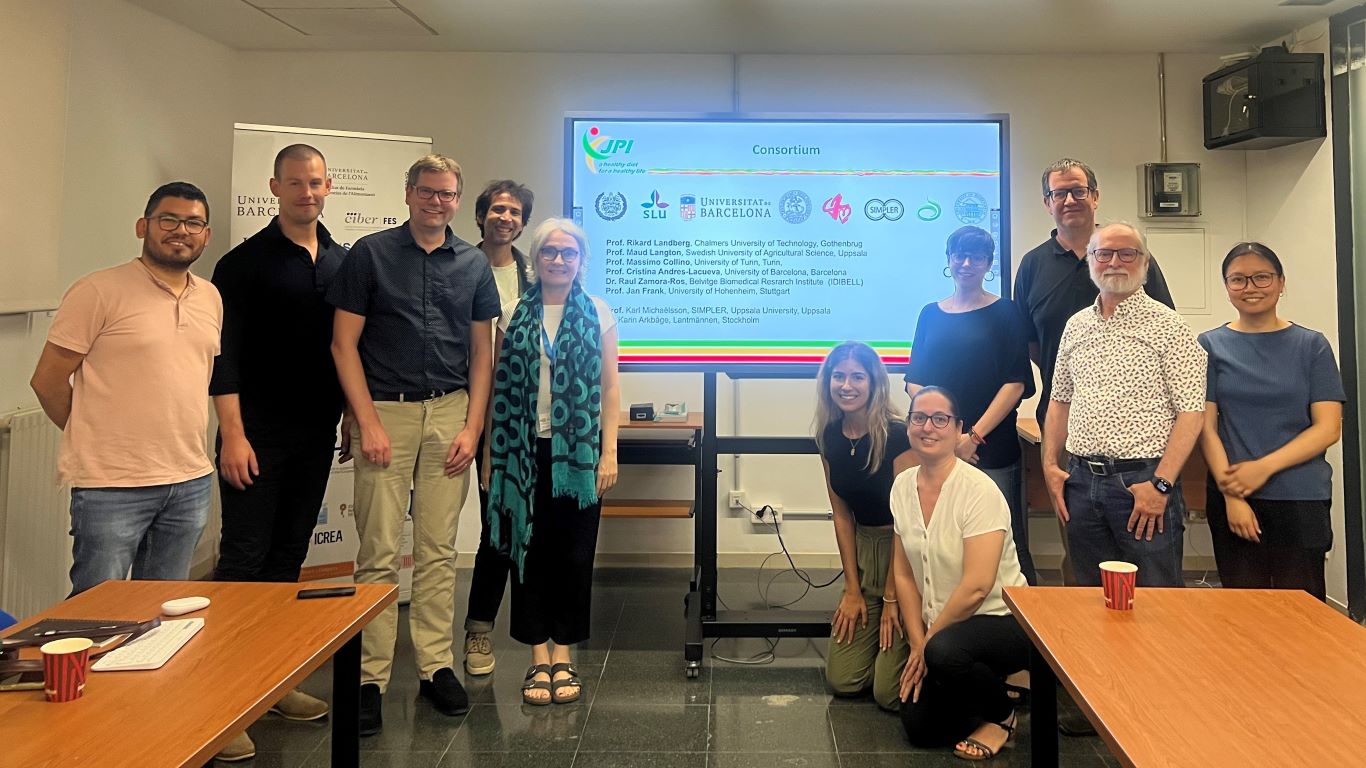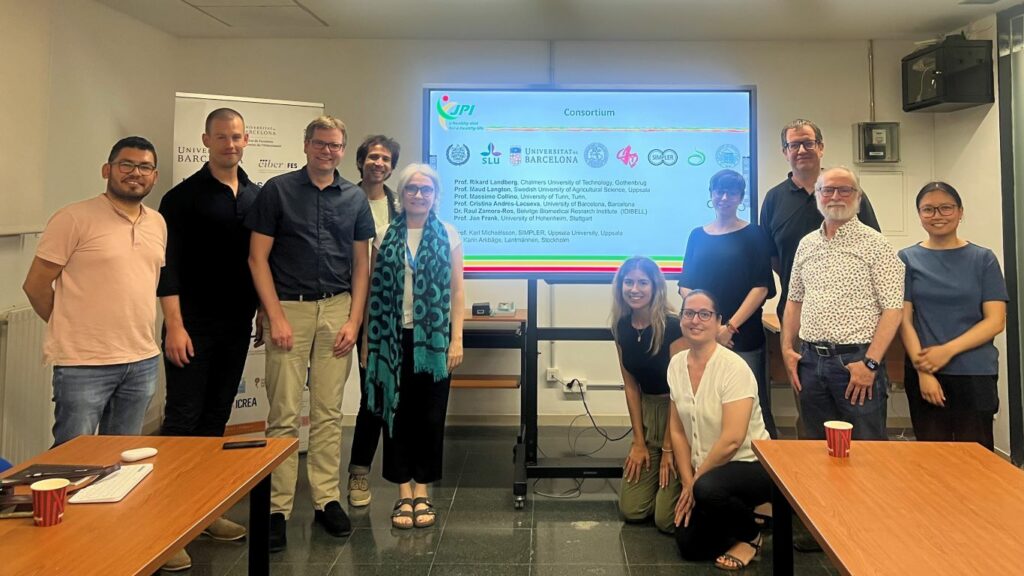New Perspectives on Prostate Cancer: Identifying Dietary and Microbial Metabolites Could Be Key to Prevention

New Perspectives on Prostate Cancer: Identifying Dietary and Microbial Metabolites Could Be Key to Prevention
Prostate cancer is the second most common neoplasia among men worldwide. According to GLOBOCAN data, in 2020, there were 1,414,000 new cases and 375,304 deaths related to this disease. Despite its high incidence, prostate cancer is characterized by considerable clinical, morphological, and molecular heterogeneity. Among the known risk factors, non-modifiable ones such as age, ethnicity, and family history play a fundamental role. However, modifiable factors such as physical activity and metabolic syndrome have also been identified as potential intermediaries, particularly the connection between coronary disease and prostate cancer. Nevertheless, the impact of diet, obesity, and smoking remains uncertain.
A team of researchers, led by the Bellvitge Biomedical Research Institute (IDIBELL), the University of Barcelona, and the CIBER area of Frailty and Healthy Aging (CIBERFES), in collaboration with prestigious national and international institutions such as the Metabolomics Innovation Centre (TMIC Wishart Node), CIBERESP, and the German Cancer Research Center (DKFZ), among others, has identified potential biomarkers related to the risk of developing prostate cancer through metabolomic analyses.

The study, titled “Prediagnostic Plasma Nutrimetabolomics and Prostate Cancer Risk: A Nested Case–Control Analysis Within the EPIC Study”, was recently published in the journal Cancers. It was led by Dr. Raúl Zamora-Ros, head of the Nutrition and Cancer group at IDIBELL and ICO, and conducted within the framework of the EPIC (European Prospective Investigation into Cancer and Nutrition) project. The study aimed to explore the prospective association between plasma metabolites, both endogenous and exogenous, and the risk of developing prostate cancer, including its different clinical subtypes.
Targeted Metabolomics as an Emerging Tool in Prevention
In this context, targeted metabolomics is emerging as an innovative tool capable of quantifying and characterizing low-molecular-weight compounds in bodily fluids, offering a promising avenue for identifying new risk biomarkers. It also helps clarify the role of internal factors, such as the genome, and external factors, including diet, lifestyle, environment, and gut microbiota, in the development and progression of prostate cancer.
The study’s findings highlight the possible involvement of endogenous, dietary, and microbial metabolites in prostate carcinogenesis. Although associations were identified between 31 metabolites and prostate cancer risk across various clinical subtypes, these relationships did not reach statistical significance after rigorous corrections, necessitating further validation in future research.
Dietary Intervention as a Key to Prevention
This large-scale nutrimetabolomic analysis, one of the most extensive to date, highlights the relevance of dietary factors and the gut microbiome in prostate cancer risk. Metabolites related to plant-based foods and microbial metabolism products could serve as nutritional biomarkers. Specifically, a negative association was identified with biomarkers linked to plant-based foods, while cyclamate, a common artificial sweetener, showed a positive association.
The findings also indicate a potential role of the gut microbiome in prostate cancer development, although further research is needed to fully understand this connection. However, the results suggest that modulating the gut microbiome through prebiotics or probiotics could help prevent or delay the onset of this disease..
The future of Preventive Medicine
If these results are confirmed, they could lay the groundwork for developing tools such as risk calculators or nomograms that allow for a more precise identification of men with higher susceptibility, offering new opportunities for prostate cancer prevention and early detection. This advancement would be a significant step toward implementing precision medicine strategies tailored to the individual characteristics of each patient.
This research has been funded, among others, by La Marató de TV3 (project numbers 201943-30 and 201943-31); the Carlos III Health Institute through the CIBERFES project, CB16/10/00269, and the PID2020-114921RB-C21 grant, funded by MCIN/AEI, all co-financed by the European Regional Development Fund (ERDF), “A way to make Europe.” It has also received support from the AGAUR Agency of the Generalitat de Catalunya (2021SGR00687), ICREA Academia, and the María de Maeztu Unit of Excellence grant (CEX2021-001234-M), funded by MICIN/AEI/ERDF, EU.
Reference
Almanza-Aguilera E, Martínez-Huélamo M, López-Hernández Y, Guiñón-Fort D, Guadall A, Cruz M, Perez-Cornago A, Rostgaard-Hansen AL, Tjønneland A, Dahm CC, Katzke V, Schlze MB, Masala G, Agnoli C, Tumino R, Ricceri F, Lasheras C, Crous-Bou M, Sánchez MJ, Aizpurua-Atxega A, Guevara M, Tsilidis KK, Chrysovalantou Chatziioannou A, Weiderpass E, Travis RC, Wishart DS, Andrés-Lacueva C & Zamora-Ros R. Prediagnostic Plasma Nutrimetabolomics and Prostate Cancer Risk: A Nested Case–Control Analysis Within the EPIC Study. Cancers. 2024; 16(23):4116. https://doi.org/10.3390/cancers16234116



